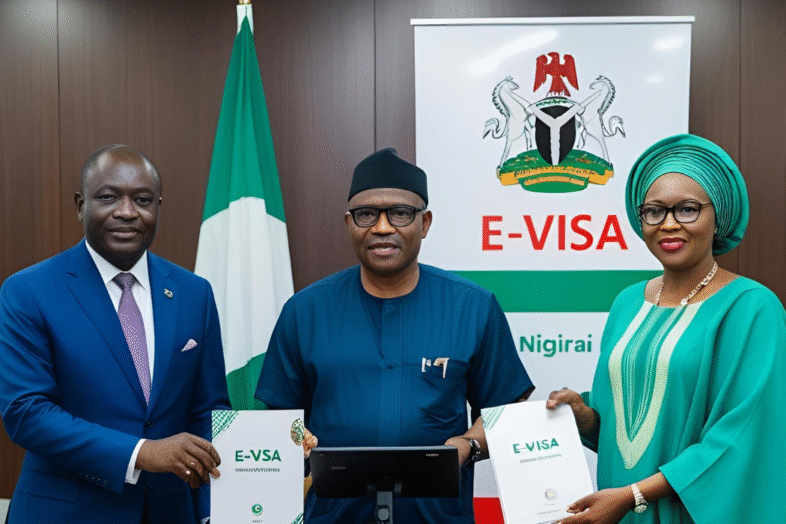
In a bold move to modernize its immigration framework, the Nigerian government has introduced two new digital systems: the e-Visa Application System and the Automated Landing and Exit Card. Rolled out on May 1, 2025, by the Federal Ministry of Interior and the Nigeria Immigration Service (NIS), these systems are designed to enhance border control, simplify travel procedures, and strengthen national security.
According to A.S. Akinlabi, Public Relations Officer for the NIS, the initiatives are part of the Renewed Hope Agenda of President Bola Ahmed Tinubu. The agenda underscores the administration’s commitment to innovation, security, and efficiency in public services, particularly in immigration.
At the forefront of the new policy is the e-Visa Application System, which has now fully replaced the traditional Visa on Arrival (VoA) procedure. The new process is entirely online and accessible via https://evisa.immigration.gov.ng. Applicants can now choose from 13 different categories under the Short Visit Visa (SVV), with approvals delivered electronically within 48 hours. Each visa comes with a QR code for verification and security. However, these e-visas are non-extendable. The VoA option will be completely phased out by May 30, 2025.
In tandem with the new visa process, the Automated Landing and Exit Card system has been introduced, replacing the previously manual embarkation and disembarkation procedures. Now, all inbound travelers, excluding Nigerian citizens, must complete an online landing card prior to boarding their flight. Similarly, outbound passengers are required to submit an exit card before leaving the country. These digital forms are seamlessly integrated with visa data, allowing for automatic enforcement of entry and exit rules.
Significant changes are also being made to address visa overstays. Starting September 1, 2025, new penalties will take effect. These include a daily fine of $15 for overstaying, a five-year entry ban for overstays of three months or more, and permanent blacklisting for individuals who overstay by one year or longer.
To ease the transition, the NIS has announced a three-month grace period, from May 1 to August 1, 2025. During this time, foreigners currently residing in Nigeria with expired visas may exit the country without facing penalties.
Akinlabi urged full compliance from all stakeholders, including travelers, airlines, and embassies. “We are committed to delivering a transparent, efficient, and secure immigration system in line with global best practices,” he stated.
These reforms mark a significant step toward digitizing Nigeria’s immigration infrastructure and positioning the country as a forward-thinking player in global mobility and security management.









Add Comment